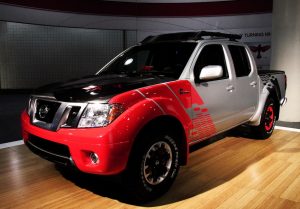 A vehicle can be many things to many people. For some, a car is simply a way to get from place to place, to work or school or play. For others, a car is extension of their being. No matter what you think of your vehicle, though, we’re all faced with the decision between buying new or used. How do you decide between buying a new car and buying a used car? When you think about it, there’s a lot more going on than just a difference in price. Here are a few things to think about that can help you decide between buying new or used:
A vehicle can be many things to many people. For some, a car is simply a way to get from place to place, to work or school or play. For others, a car is extension of their being. No matter what you think of your vehicle, though, we’re all faced with the decision between buying new or used. How do you decide between buying a new car and buying a used car? When you think about it, there’s a lot more going on than just a difference in price. Here are a few things to think about that can help you decide between buying new or used:
- Financing – New cars are typically easier to finance than used cars, as not all banks will even bother with used cars. Then again, if your credit rating isn’t stellar, financing a used car may be easier. If you can’t pay cash, however, don’t forget that financing adds a percentage on top of the upfront price of the vehicle.
- Insurance – If you finance a car, you’ll spend extra on insurance, since most financers require collision and comprehensive coverage. If you pay cash for a used car, you aren’t required to have the extra coverage.
 Depreciation – In the first year, some new cars lose up to 40% of their value! If you plan on changing cars in a year or two, you won’t be able to recover those losses. Used cars, even just two or three years old, are much more affordable, which is great for buyers but not so much for sellers.
Depreciation – In the first year, some new cars lose up to 40% of their value! If you plan on changing cars in a year or two, you won’t be able to recover those losses. Used cars, even just two or three years old, are much more affordable, which is great for buyers but not so much for sellers.- Reliability – This can be a mixed bag. If the new car is a brand new model, it may have some problems that the engineers haven’t worked out yet. True, the dealership will cover the expenses during the warranty period, but you may spend more time at the shop than you would like, which can be stressful in itself. Models with two or three years on them don’t suffer so much in this respect. Used cars typically have already had all the kinks worked out, but reliability often depends on how well the car was maintained by the previous owner. Look for maintenance records to be sure.
- Warranty – New cars come with a warranty, covering many problems within certain period of time or vehicle mileage. If anything goes wrong, the dealer takes care of it. Similarly, certified pre-owned vehicles come with a warranty, though it usually isn’t as comprehensive as a new car warranty. Aside from state-mandated warranties, used cars typically don’t have any warranty coverage at all. If something goes wrong, it’s your responsibility.
- Features – New cars often tout their latest onboard entertainment systems and passenger comforts, but you’ll pay for them. Used cars may be lacking the latest gadgets, but you might consider installing them yourself if available.
- Safety – New cars are getting new safety equipment all the time. Depending on the age of the used car, some of these may be lacking. Of course, such systems are no replacement for safe driving practices. Perhaps you could spend some of that money on a driving course.
We hope that you found this list helpful. As with everything, new cars and used cars have their pros and cons. Figuring out how much you’re willing to pay for what you’re willing to live with will give you the best of both worlds – the right price and a good ride.
 A vehicle can be many things to many people. For some, a car is simply a way to get from place to place, to work or school or play. For others, a car is extension of their being. No matter what you think of your vehicle, though, we’re all faced with the decision between buying new or used. How do you decide between buying a new car and buying a used car? When you think about it, there’s a lot more going on than just a difference in price. Here are a few things to think about that can help you decide between buying new or used:
A vehicle can be many things to many people. For some, a car is simply a way to get from place to place, to work or school or play. For others, a car is extension of their being. No matter what you think of your vehicle, though, we’re all faced with the decision between buying new or used. How do you decide between buying a new car and buying a used car? When you think about it, there’s a lot more going on than just a difference in price. Here are a few things to think about that can help you decide between buying new or used:
 Depreciation – In the first year, some new cars lose up to 40% of their value! If you plan on changing cars in a year or two, you won’t be able to recover those losses. Used cars, even just two or three years old, are much more affordable, which is great for buyers but not so much for sellers.
Depreciation – In the first year, some new cars lose up to 40% of their value! If you plan on changing cars in a year or two, you won’t be able to recover those losses. Used cars, even just two or three years old, are much more affordable, which is great for buyers but not so much for sellers.